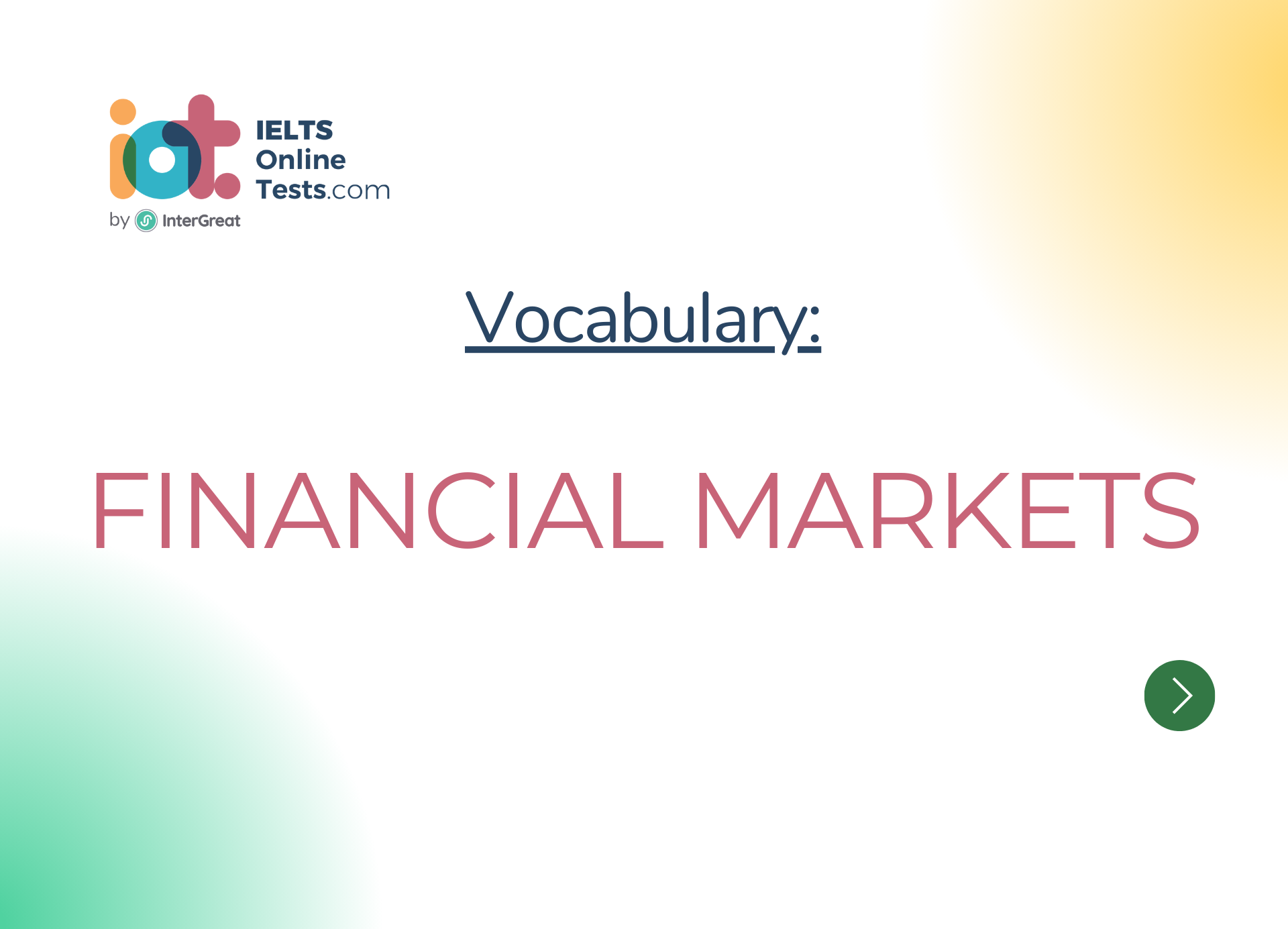
Financial markets
Here's a detailed list of vocabulary related to financial markets for the IELTS band score 4.5-6.0:
Stock Market:
A marketplace where shares of publicly traded companies are bought and sold.
Bond Market:
A market for buying and selling bonds, which are debt securities issued by governments or corporations.
Foreign Exchange Market (Forex):
A global decentralized or over-the-counter market for trading currencies.
Commodity Market:
A market for trading raw materials or primary agricultural products.
Derivatives Market:
A market for financial instruments derived from underlying assets, such as options and futures contracts.
Equity Market:
Another term for the stock market, where ownership interests in companies are traded.
Capital Market:
A financial market for long-term debt and equity securities.
Money Market:
A market for short-term borrowing and lending of funds, typically with maturities of one year or less.
Primary Market:
The market where newly issued securities are sold for the first time.
Secondary Market:
The market where existing securities are bought and sold among investors.
Exchange-Traded Fund (ETF):
A type of investment fund that trades on stock exchanges, representing a basket of assets.
Mutual Fund:
An investment fund that pools money from multiple investors to invest in a diversified portfolio of securities.
Index Fund:
A type of mutual fund or ETF that aims to replicate the performance of a specific market index.
Hedge Fund:
A private investment fund that uses various strategies to maximize returns for its investors.
Portfolio:
A collection of financial assets, such as stocks, bonds, and cash, held by an individual or institution.
Volatility:
The degree of variation or fluctuation in the price of a financial instrument or market.
Liquidity:
The ease with which an asset can be bought or sold without causing significant price movements.
Bear Market:
A market characterized by declining prices and pessimism among investors.
Bull Market:
A market characterized by rising prices and optimism among investors.
Market Capitalization:
The total value of a company's outstanding shares of stock, calculated by multiplying the share price by the number of shares.
Short Selling:
The practice of selling borrowed securities in the hope of buying them back at a lower price.
Dividend:
A payment made by a corporation to its shareholders, usually from its profits.
Initial Public Offering (IPO):
The first sale of a company's stock to the public.
Securities:
Financial instruments representing ownership in a company or the right to receive future cash flows.
Arbitrage:
The practice of taking advantage of price differences in different markets to make a profit.
Risk Management:
The process of identifying, assessing, and mitigating potential risks in financial transactions.
Market Sentiment:
The overall attitude or feeling of investors towards a particular market or security.
Market Order:
An order to buy or sell a security at the best available price in the market.
Limit Order:
An order to buy or sell a security at a specified price or better.
Margin Trading:
Trading with borrowed funds to increase the potential return on investment.
Rally:
A rapid increase in the price or value of a financial market or security.
Correction:
A temporary reversal in the price trend of a financial market, typically a decline of 10% or more.
Diversification:
Spreading investments across various assets to reduce risk.
Volatility Index (VIX): '
A popular measure of market volatility often referred to as the "fear index."
Leverage:
The use of borrowed money to increase the potential return on an investment.
Market Maker:
A firm or individual that provides liquidity to a market by buying and selling securities.
Securities Exchange Commission (SEC)
: A regulatory agency that oversees and enforces securities laws in the United States.
P/E Ratio:
Price-to-earnings ratio, a valuation ratio of a company's current share price relative to its earnings per share.
Dividend Yield:
The annual dividend income of a security relative to its current market price.
Market Analysis:
The study of market trends and data to make informed investment decisions.
Understanding these financial market terms will not only improve your vocabulary but also help you comprehend financial news and concepts during the IELTS exam. Good luck with your studies!




